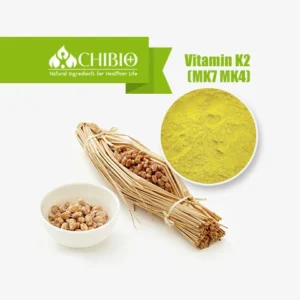Rutin
Product Details

1.What is Rutin?
Rutin, which is also known as vitamin P and rutoside, is a bioflavonoid that’s found in certain foods, including apples, figs, most citrus fruits, buckwheat and green tea. Like all flavonoids, it has powerful antioxidant and anti-inflammatory effects. It’s used as medicine to strengthen blood vessels, improve blood circulation, lower cholesterol and relieve arthritis symptoms.
Rutin is also known for its potential ability to promote the production of collagen and help the body to use vitamin C properly.
The name of the flavonoid comes from the name of the plant Ruta graveolens, which also contains this phytonutrient. Chemically, rutin is a glycoside that comprises flavonolic aglycone quercetin, along with disaccharide rutinose.
Rutin can be used as edible antioxidants and nutritional enhancers.
Rutin is a widely-sourced flavonoid, mainly found in the flower buds (glutinous rice), fruits (horns) of the legumes (Sophora japonica L.), and the whole grass of Rutagraveolenslens L. Peach and so on.


2.Specification of Rutin
| Items | Specifications |
| Product Name | Rutin |
| Botanical Source | Sophora japonica L. |
| Appearance | Yellow or greenish-yellow,crystalline powder |
| Solubility | Practically insoluble in chloroform and ether |
| Infinitesimally soluble in cool water | |
| Sparingly soluble in boiling ethanol and boiling water | |
| Dissolves in solution of alkali hydroxides | |
| Identification | A.B.C |
| Specification | NF11 95%UV, DAB10 98%UV |
| Loss on drying | 5.5-9.0% |
| Residue on Ignition | ≤0.5% |
| Impurity quercetin | ≤5% |
| Chlorophyll | ≤0.004% |
| Red pigments | ≤0.004% |
| Heavy Metal | ≤10ppm |
| Mesh Size | 95% pass 80 mesh |
| Assay (anhydrous substance) | 95% —101.5% |

3.How Rutin Work(Mechanisms)
Rutin is not an especially large flavonoid, but specific parts of its molecule interact with different systems in the body, such as the brain, heart, or blood vessels.
For example, rutin contains two bound sugar molecules, which enhance its antioxidant effects on the brain.
Overall, rutin acts by:
- Protecting brain cells from damage
- Blocking inflammatory enzymes (phospholipase A2), similar to corticosteroids but without the side effects
- Reducing oxidative stress and free radicals
- Safely lowering high blood pressure, affecting similar pathways as drugs used for high blood pressure (blocks ACE)
- Boosting acetylcholine (by clocking the enzyme that degrades it, AChE)
- Binding to and neutralizing toxic compounds that build up in the body if exposed to radiation
- Relaxing blood vessels
4.Benefits & Applications of Rutin
As all flavonoids, rutin is an antioxidant. It’s one of the most important and well-researched flavonoids. It protects the cells and has anti-inflammatory, cancer-fighting potential. By its widespread action, rutin can protect the heart, liver, brain, and bones.

- 1. Rutin can be used as edible antioxidants and nutritional enhancers.
- 2. Rutin has vitamin P-like action and anti-inflammatory effect, can reduce inflammation caused by mustard oil on animal eyes or skin, has anti-viral effect, and has the largest vesicular stomatitis virus at a concentration of 200 μg·ml-1 Inhibition. It has strong antioxidant properties, and the addition of rutin to the lysosome-rich homogenate can inhibit the formation of lipid-like peroxides. It can strongly absorb ultraviolet rays at 280-335 nm and can be used for sunscreen whitening cosmetics.
- 3. Rutin has the functions of maintaining vascular resistance, reducing its permeability, and reducing fragility. It can be used to prevent diseases such as cerebral hemorrhage, hypertension, retinal hemorrhage, purpura and acute hemorrhagic nephritis.
- 4.Pharmaceuticals Function: Anti-free radical action, Anti-lipid peroxidation, Antagonistic effect of platelet activating factor, Anti-acute pancreatitis




-300x300.webp)

